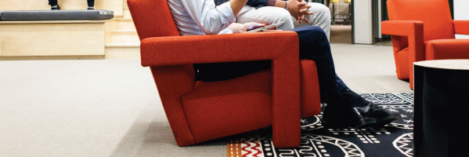To provide the best experiences, we use technologies like cookies to store and/or access device information. Consenting to these technologies will allow us to process data such as browsing behaviour or unique IDs on this site. Not consenting or withdrawing consent, may adversely affect certain features and functions.
The technical storage or access is strictly necessary for the legitimate purpose of enabling the use of a specific service explicitly requested by the subscriber or user, or for the sole purpose of carrying out the transmission of a communication over an electronic communications network.
The technical storage or access is necessary for the legitimate purpose of storing preferences that are not requested by the subscriber or user.
The technical storage or access that is used exclusively for statistical purposes.
The technical storage or access that is used exclusively for anonymous statistical purposes. Without a subpoena, voluntary compliance on the part of your Internet Service Provider, or additional records from a third party, information stored or retrieved for this purpose alone cannot usually be used to identify you.
The technical storage or access is required to create user profiles to send advertising, or to track the user on a website or across several websites for similar marketing purposes.
 Flexible working has become the norm for many workers since the COVID-19 pandemic began, but it can actually lead many to work longer and harder, with work encroaching on family life. A new book by Professor Heejung Chung from the University of Kent’s School of Social Policy, Sociology and Social Research explores how workers’ wellbeing and gender equality may in fact be jeopardised by flexible work, rather than providing a better work-life balance. (more…)
Flexible working has become the norm for many workers since the COVID-19 pandemic began, but it can actually lead many to work longer and harder, with work encroaching on family life. A new book by Professor Heejung Chung from the University of Kent’s School of Social Policy, Sociology and Social Research explores how workers’ wellbeing and gender equality may in fact be jeopardised by flexible work, rather than providing a better work-life balance. (more…)




































March 3, 2022
What really happens when we start using offices again?
by Henry Stainton • Comment, Flexible working, Property